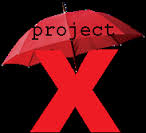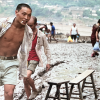In Singapore, what you see is not what you get. Under its glitzy first-world façade lies a record of human rights so poor one would be taken aback at the jarring dissonance. It is at once a country boasting a US$274.7 billion GDP as well as one ranking 150th in the Reporters Without Borders World Freedom Index. However, despite the dearth in policies improving the lives of ordinary residents in the country, there exists a handful of social justice organisations working hard at the helm hoping to change all this. Latitudes takes a look at a few groups and movements.
In a country that is small in size and limited in resources, Singapore relies heavily on the labour of migrant workers, especially in the fields of construction and domestic work. With overseas workers numbering up to a quarter of the 5.3 million population – with more coming in every year – their temporal nature results in a precarity unfortunately not protected by laws. Minimum wage is non-existent, and there is hardly any legislative protection. Union representation is also extremely limited. This results in foreign workers being vulnerable to low pay, poor working conditions and no opportunities for recourse.
And this is where TWC2 steps in. A non-profit organisation advocating fair treatment for migrant workers, they actively engage with government officials, employment agencies and the general public to work towards raising awareness and changing attitudes. Since its formation in 2003, TWC2 has grown into a reliable help agency for migrant workers who encounter problems with their employers, working with up to 500 cases each time. They have also become a valuable source of information for both employers and the public.
 Deeply invested in the issue of gender equality, the non-governmental organisation AWARE has been advocating for women’s rights in Singapore for close to twenty years. With an impressive CV of work following their inception in 1985, their involvement in research, advocacy, education and training have contributed to changes in laws and policies pertaining to gender equality in Singapore. Some of their work includes pushing for equalisation of medical benefits for male and female civil servants, and revisions to the penal code (specifically issues of marital rape). In 2011, AWARE launched the Sexual Assault Befrienders Service (SABS) , the first support service for survivors of sexual assault in Singapore. There are also services which dispense free legal advice to women in need.
Deeply invested in the issue of gender equality, the non-governmental organisation AWARE has been advocating for women’s rights in Singapore for close to twenty years. With an impressive CV of work following their inception in 1985, their involvement in research, advocacy, education and training have contributed to changes in laws and policies pertaining to gender equality in Singapore. Some of their work includes pushing for equalisation of medical benefits for male and female civil servants, and revisions to the penal code (specifically issues of marital rape). In 2011, AWARE launched the Sexual Assault Befrienders Service (SABS) , the first support service for survivors of sexual assault in Singapore. There are also services which dispense free legal advice to women in need.
The issue of sex work is laid between murky waters within Singapore’s laws and constitutions. Despite prostitution being declared legal in the city-state, prostitution-related activities are criminalised. Some of these ‘activities’ include owning a brothel and soliciting in public places for the purposes of prostitution. This all sounds very convoluted, and it is reasonable to be confused. Special licenses for brothel operation are issued by the Anti-Vice Police , and these brothels are not publicly acknowledged by the state. Sex workers are issued a yellow card in order to work inside these establishments. An ongoing contract stipulates no entitlement to medical leave and that (mandatory) health checks are to be paid for with their own wages. Other sex workers who work without the yellow card are considered illegal, and are left even more vulnerable, constantly subjected to raids, harassment, intimidation and imprisonment.
As a result, Project X strives as an organisation to equate sex workers’ rights with human rights, and work towards reducing the discrimination and stigma that sex workers currently face in modern Singaporean society. This is done through groundwork, walking the streets where sex workers operate to find out about their concerns and document abuses towards them, and public awareness campaigns. Project X is also looking to send their first human rights documentation report to the United Nations and relevant local Ministries.













